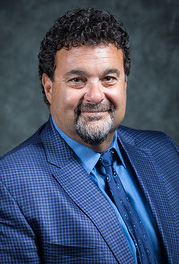Traumatic Brain Injury Lawyer
Joe Motta has helped many clients who have suffered from minor to severe head and brain injuries. Immediately after a head trauma concussion, symptoms such as confusion and amnesia may occur for several minutes. There may also be impaired memory of events just prior to and/or after the injury. There may be loss of consciousness, dizziness, and confusion. All of these symptoms are related to the acceleration and deceleration effect of the brain in the skull during and traumatic injury. Fortunately 90% of patients who have suffered a concussion recover with no residual symptoms within 7-10 days. The unfortunate 10% with persistent post concussive syndrome (PCS) can have significant alterations in their lives. Headaches and fatigue that is related to changes in cognitive function are the most frequent symptoms related to PCS. Persistent symptoms that extend past 3-4 weeks are likely to have a profound impact on a patient’s psychosocial welfare, including affecting their work, interpersonal skills, and emotional well being. Families of a person who have suffered a concussion may notice irritability, memory impairments, and disorientation. PCS is defined by the World Health Organization International Classification of Disease as having at least three of the following symptoms:
- headache
- fatigue
- irritability
- dizziness
- problems in concentration
- problems in memory
Millions Recovered. You pay nothing unless we win your case.
(925) 954-8366
At Joseph Motta Attorney at Law, PLC, we understand that fair compensation is simply not possible if the jury does not understand the impact of the concussion on the client. The effects of a concussion can last a lifetime. An attorney’s job is to paint a picture of the client before and after the brain injury. This would include presenting competent medical evidence by way of expert testimony, which can be complicated and very technical. It takes experience to understand the pitfalls and defenses that are used to discredit the brain injured client. To make a client “whole”, the economic and noneconomic damages a client has and will suffer from as a result of PCS can be significant, and we have had great success in getting are client significant results.
Free initial consultation. Call or e-mail to talk to a lawyer.
Treatment for Post Concussive Syndrome
Treatment for PCS ranges. In a mild case; rest and then advance their activity by participating in the normal activities of daily living as soon as possible. In more severe cases, medications for headaches, physical therapy is also helpful, which may include stretching, electric stimulation, therapeutic heat or cold, ultrasound, and cervical traction.
A clinical psychologist or a neuropsychologist will also need to become involved in the client’s treatment and prognosis to help patients and family understand the level of cognitive deficits a client is experiencing and help with the problems associated with a concussion. Clinical psychologists and neuropsychologists are trained in objective testing, which can detect subtle cognitive deficits related to the brain injury. Patients may have problems with attention, verbal memory, and comprehension. A speech therapist is uniquely qualified to break down tasks into manageable parts, as well as provide therapeutic workbooks to improve attention, concentration, and problem solving. They are instrumental at providing behavior skills to help coping with deficits related to PCS. They are trained to test cognition, attention, and language function, which are necessary to document deficits and monitor recovery following a concussion.
Joe Motta has helped clients who have suffered head and brain injuries due to sports injuries, bike accidents, motor vehicle accidents, and other traumatic events. Concussions are often a contributing cause to disability and often coexist with other cervical and lumbar injuries such as herniated discs and broken bones. Sometimes in significant trauma, there is the danger that the subtle problems related to PCS may be overlooked. PCS needs to be addressed and treated appropriately.





